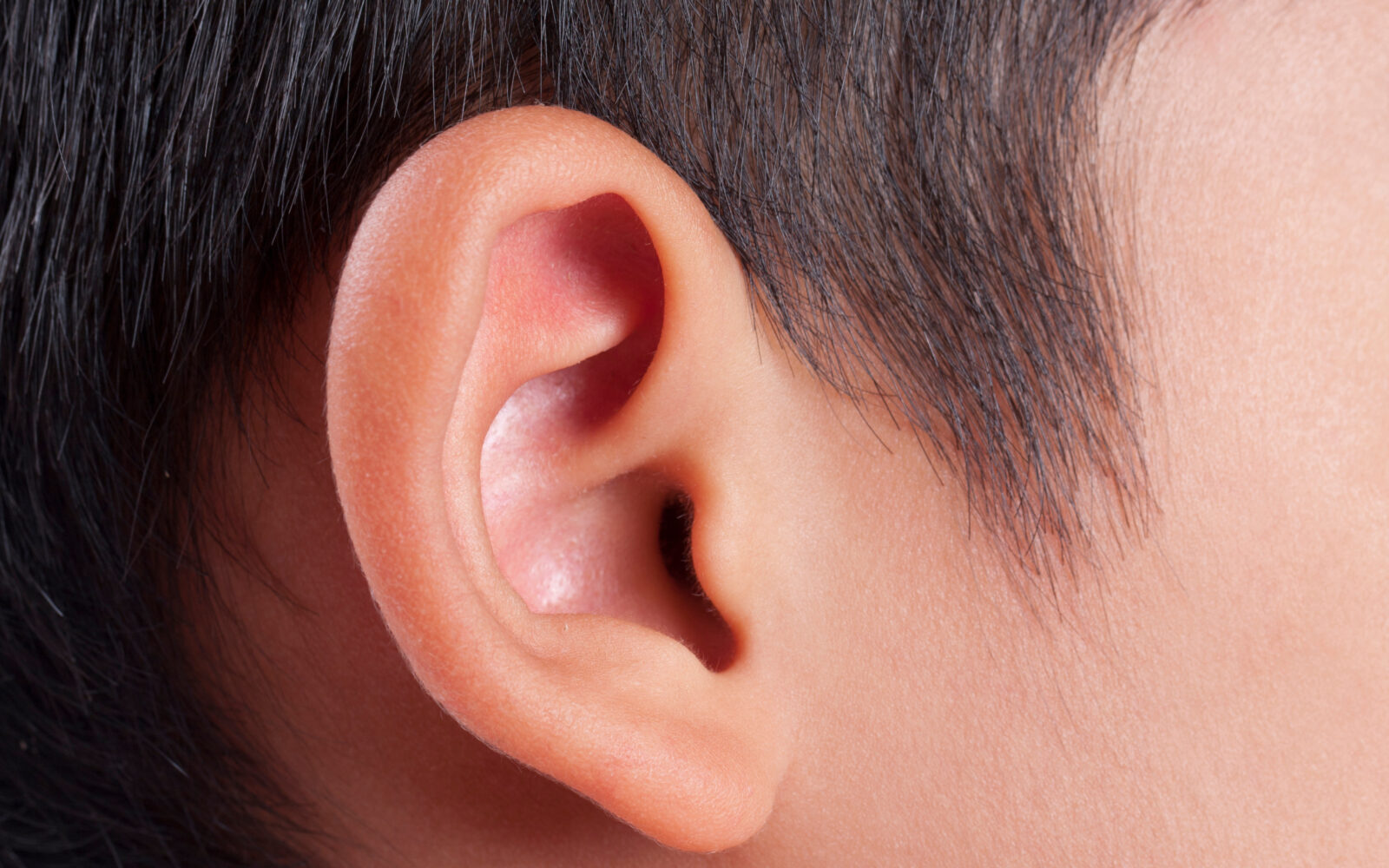Restoring Clearer Hearing with Advanced Hearing Aid Solutions at NJ Eye and Ear Audiology
Hearing is one of the most vital senses we rely on every single day,

By: admin | April 24, 2025
The relationship between stress and hearing health works both ways – stress can affect your hearing, and hearing difficulties can increase your stress levels. Many people don’t realize that the body’s stress response can actually change blood flow to the inner ear and affect how we process sounds. At the same time, straining to hear during everyday conversations with family, friends and coworkers requires mental energy that builds up stress over time.
When you’re constantly asking people to repeat themselves or missing parts of important conversations, it takes a toll on your confidence and mental wellbeing. You might find yourself avoiding social situations or feeling more tired at the end of workdays that involve lots of communication. This experience is surprisingly common but rarely discussed – many people silently cope with hearing-related stress without realizing there are ways to address both the hearing challenges and the stress they create. Understanding this connection is the first step toward finding solutions that improve both your hearing function and your overall quality of life.
Stress can have complex effects on your body, impacting your mental state and various physical aspects, including your hearing. Elevated stress levels prompt your body to release hormones such as cortisol and adrenaline, part of your body’s “fight or flight” response. While this response is helpful in temporary stressful situations, prolonged exposure can lead to harmful effects, including on your ears. Stress hormones can cause your blood vessels to constrict, reducing blood flow throughout your body – ears included. Decreased blood flow in the ears could affect your hearing abilities, leading to temporary or even permanent changes.
These physical changes can create a challenging cycle – when you struggle to hear properly, daily interactions with family members, coworkers and friends become more difficult. You might miss important information in meetings, misunderstand conversations or feel left out during group gatherings. These communication challenges often lead to frustration, anxiety and additional stress, which further aggravates the physical aspects of stress on your hearing.
Many people don’t realize this connection exists, quietly coping with both hearing difficulties and rising stress levels without addressing either issue. The good news is that by understanding how stress affects your hearing health, you can take steps to manage both concerns effectively. Small changes in how you handle stress and approach communication can make a significant difference in your hearing experience and overall wellbeing, helping you stay connected and engaged in all aspects of your life.
To understand how stress affects your hearing, let’s take a quick peek at the structure of the ear and how it works.
Your ear consists of three main parts: the outer ear, middle ear and inner ear. Each part plays a significant role in capturing sound waves from your surroundings and converting them into signals that your brain interprets as sound. The outer ear, consisting of the pinna and the ear canal, captures sound waves and directs them to your eardrum in the middle ear.
These vibrations get amplified by three tiny bones in your middle ear, known as ossicles and transmitted to your inner ear, where they reach the cochlea, a fluid-filled spiral structure. Inside the cochlea, thousands of tiny hair cells move with the fluid vibrations, initiating electrical signals that travel to your brain via auditory nerves for interpretation. Any disruption – like reduced blood flow due to stress – can impact our hearing abilities.
Noticing early hearing changes can be tricky – especially when they happen slowly over time. You might find yourself asking people to repeat themselves more often or feeling like others are mumbling, especially in places with background noise. Conversations in group settings may become more difficult to follow, and phone calls might seem muffled or unclear. These changes can be subtle at first, but they often signal that your ears are working harder than they used to. It’s also common to feel more tired after social events, as your brain is putting in extra effort to fill in the gaps when hearing isn’t as sharp.
Other signs may show up in unexpected ways. You might start turning up the volume on the TV higher than your family prefers, or you may begin avoiding certain situations where listening feels like a challenge. Sometimes, it’s the people around you who notice the difference first. Even mild hearing changes can affect how you interact with others, leading to frustration, social withdrawal or misunderstandings. Paying attention to these early clues can make a real difference. The sooner you get a professional evaluation, the easier it is to explore solutions that support your hearing and your lifestyle.
Tinnitus, marked by a constant ringing or buzzing sound in the ears, is often associated with stress. High levels of stress can trigger or exacerbate existing tinnitus symptoms. Similarly, persistent tinnitus can also lead to increased stress and anxiety, creating a tough cycle to break.
While it may not be immediately clear if your tinnitus is directly linked to your stress levels, it’s worth pondering this possibility, especially if you’ve been under significant pressure recently. Managing your stress effectively could potentially help reduce the severity of your tinnitus symptoms or even prevent them from happening in the first place. Regular exercise, relaxation techniques like yoga or meditation and maintaining a balanced diet can manage your stress and possibly keep those bothersome ringing sounds under control!
Vertigo is a sensation of feeling off balance and experiencing a dizzy spell that may feel like the world is spinning around you. It’s often caused by problems in the inner ear or brain. High stress levels can lead to vertigo episodes. When you’re stressed, your body produces more adrenaline to help you cope. However, this increase in adrenaline can sometimes lead to heightened sensitivity in your inner ear and brain to sensory information like movement and balance. This sensitivity can then trigger vertigo symptoms. If you’ve been dealing with unexplained bouts of dizziness or imbalance and also experiencing high stress levels, there might be a connection worth considering.
Immediate effects of stress are not the only concern. Chronic stress, which is continuous and prolonged, can significantly affect various aspects of your health – including your hearing.
Over time, the constant release of stress hormones like cortisol can cause persistent blood vessel constriction, potentially reducing blood flow to your ears. This could lead to damage in the delicate structures within your ear that are vital for hearing. As a result, you may experience changes in your hearing or even permanent hearing loss.
Recognizing this potential consequence emphasizes why managing chronic stress is so vital for preserving not just overall health but also maintaining good ear health. Incorporating effective stress management strategies into daily life can help protect against the long-term impacts of chronic stress on your hearing abilities.
Everyday stressors – many of which we don’t typically associate with hearing – can quietly affect your auditory health over time. Chronic stress, for example, can impact blood flow and circulation, including in the delicate structures of the inner ear. This may raise the risk of temporary hearing issues or worsen existing ones. Loud environments, whether from traffic, construction, music or even frequent headphone use, can also place ongoing strain on your ears. While the effects might not be immediate, repeated exposure without protection can gradually lead to hearing damage.
Other daily factors like poor sleep, dehydration and certain medications can also influence how well your auditory system functions. Even something as common as clenching your jaw during stressful moments can contribute to ear pressure or discomfort. These smaller stressors may seem harmless on their own, but over time, they can add up. Being aware of how your daily habits affect your hearing gives you the opportunity to make simple changes – like wearing ear protection, managing stress and staying well-rested – that help support long-term auditory wellness.
What can you do to lessen the impact of daily stressors on your ear health? One of the most effective ways is through regular exercise. Physical activity helps reduce stress levels and improves overall blood circulation, which can benefit your ears too! Whether it’s a brisk walk in the park or a quick workout at home, incorporating exercise into your routine can go a long way towards protecting your hearing health.
Prioritizing good sleep hygiene is another crucial step. Lack of sleep or poor-quality sleep often leads to increased stress levels, which as we know, can affect ear health. Try establishing a regular sleep schedule and creating a restful environment for sleep to ensure you’re getting adequate rest.
Diet also plays an important role in managing stress and maintaining good ear health. Consuming balanced meals rich in vitamins and minerals helps keep our bodies (including our ears) functioning optimally. Also, certain foods like bananas and dark chocolate are known for their natural mood-boosting properties that may help manage stress.
Finally, consider incorporating relaxation techniques such as deep breathing exercises or mindfulness meditation into your routine. These practices have been shown to effectively reduce stress levels and promote overall well-being.
It’s not always easy to tell when stress is affecting more than just your mood, but if you’ve noticed changes in your hearing or ear health during stressful periods, it may be time to talk to an audiologist. Ringing in the ears (tinnitus), ear pressure or a sudden feeling of fullness can sometimes be linked to elevated stress levels. If these symptoms linger or interfere with your daily life, they deserve attention – especially if you’re also experiencing trouble following conversations or noticing that sounds aren’t as clear as they used to be.
An audiologist can help determine whether stress is contributing to your hearing issues or if there’s another underlying cause that needs to be addressed. Since hearing changes can develop gradually, even subtle shifts shouldn’t be ignored. Seeking help early allows you to explore treatment options or coping strategies that fit your lifestyle. If stress is playing a role, you’ll have support in finding both relief and a plan to protect your hearing going forward.
Recognizing the link between stress and hearing is more than just interesting science – it’s a reminder to pay attention to how we’re feeling physically and emotionally. If you’ve been noticing more tension, more fatigue or more frustration in your day-to-day communication, it could be more than just stress alone. Hearing changes, even subtle ones, can slip in quietly and make daily life feel harder than it needs to be. The good news? You don’t have to figure it out on your own.
If you’re in the Englewood area, NJ Eye and Ear is here to help. Call (201) 408-4441 to schedule an appointment with a hearing professional who understands the connection between stress and hearing. A straightforward evaluation can help you make sense of what you’ve been experiencing and offer a plan that supports both your hearing and your day-to-day wellbeing.

Hearing is one of the most vital senses we rely on every single day,
By: admin | August 26, 2025

Hearing loss rarely happens overnight. For most people, it’s a slow fade
By: admin | July 14, 2025

In today’s world, noise is constant. From the moment you wake up to the
By: admin | June 14, 2025
